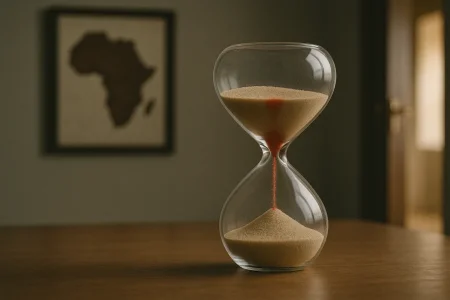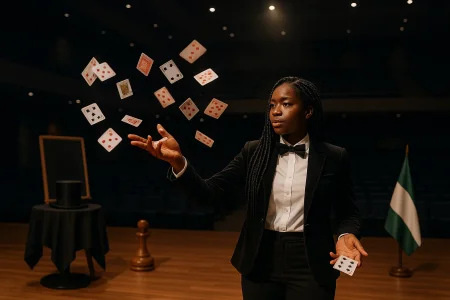
The 17th Headies Awards—once Nigeria's ultimate music celebration—has again sparked conversation not just for its winners and losers but also for what it reveals about Afrobeat's evolution. As Nigerian music conquers global charts and fills international venues, the relationship between artists, organisers, and local recognition has become increasingly complex, often mirroring Nigeria's widening economic and social divides.
Key perspectives to consider:
- Organisers face unprecedented challenges scaling a local awards show to match Afrobeat's global stature
- Artists balance competing pressures—maintaining international images while honouring hometown roots
- The growing disconnect reflects tensions between Nigeria's glamorous entertainment industry and everyday national realities.
- Rising talents feel compelled to emulate established stars' behaviour to command similar respect and recognition.
- Local audiences experience pride in global success and disappointment when homegrown talent becomes inaccessible.
- Artist behaviour often reflects industry pressure to project specific images rather than simple arrogance.
Explore Complete Analysis
When Local Excellence Meets Global Expectation
When the Headies first emerged, it was a celebration of Nigeria's creative spirit—a night when local talent received hometown recognition before the world took notice. Fast-forward to its 17th iteration, and the landscape has transformed dramatically. Nigerian sounds now dominate global charts, fill international arenas, and influence music worldwide. This remarkable success brings with it new dynamics that explain, though don't necessarily justify, the growing tensions surrounding what was once Nigeria's premier music celebration.
The latest Headies faced familiar criticisms—scheduling delays, artist absences, communication challenges—but beyond these surface issues lies a more nuanced story about growth, expectation, and changing relationships between Nigerian artists and the platforms that first celebrated them, all against the backdrop of Nigeria's complex socioeconomic realities.
The Organisers' Dilemma
Producing a world-class awards show with local resources presents genuine challenges that deserve consideration. The Headies organisers attempt to honour music that now commands global stages, often without matching infrastructure, budgets, or international connections.While logistical missteps and delays deserve critique, they also reflect the difficulty of scaling a local institution to match the explosive growth of the culture it celebrates. When locals primarily consumed Nigerian music, the stakes and expectations were different. Today, organisers must create an experience that feels worthy of international stars while remaining authentic to its Nigerian roots.
This balancing act explains, though doesn't excuse, the recurring challenges with timing, communication, and execution that have frustrated both artists and audiences. Without international media partnerships and the resources they bring, creating a platform that feels appropriate for global stars becomes an exercise in ambitious vision meeting limited means.
The Artist's Balancing Act
For Nigerian artists navigating international success, the relationship with local recognition becomes increasingly complicated. Their absence or perceived indifference at events like the Headies isn't necessarily simple arrogance—it reflects the complex pressures of maintaining a global image while honouring hometown connections.Many now operate in an environment where their global representatives—managers, labels, publicists—counsel them on protecting their "brand" through selective appearances, carefully negotiated terms, and strategic positioning. These pressures affect established international stars and rising talents who feel they must project certain images to advance their careers.
The resulting behaviour sometimes reads as entitlement or disconnection. Yet beneath it often lies the anxiety of artists trying to represent Nigeria on world stages while simultaneously maintaining authentic connections to their roots. When an artist makes excessive demands or skips an important appearance, it may reflect this tension rather than simply dismissing their origins.
A Widening Disconnect from National Reality
Perhaps the most troubling aspect of these dynamics is how they mirror broader societal divides. As artists project images of extraordinary wealth and global mobility on social media, they can appear increasingly disconnected from the economic realities facing most Nigerians.
The entertainment industry now exists as something of a parallel reality—a glittering ecosystem of luxury cars, designer clothing, and international travel that contrasts sharply with the daily struggles of average citizens facing fuel scarcity, inflation, and infrastructure challenges.
This disconnect becomes particularly pronounced at events like the Headies, where the gap between the industry's self-celebration and the surrounding national circumstances can feel jarring. When artists arrive hours late or make extravagant demands in a country where millions struggle with basic necessities, it raises uncomfortable questions about responsibility and awareness.
The Pressure of Image and Respect
For emerging artists, especially, the pressure to command "respect" by emulating the behaviour and presentation of established stars creates a cycle that perpetuates disconnection. Young talents observe how international success correlates with certain attitudes, appearances, and demands—and naturally seek to project similar qualities to advance their own careers.This dynamic explains why entitlement isn't limited to those with global recognition. The industry's culture now values the appearance of success and the commanding of respect almost as much as artistic achievement itself. When younger artists make seemingly outsized demands or project attitudes that feel disconnected from their actual achievements, it often reflects this systemic pressure rather than individual character.
Industry veterans have observed how the concept of "paying dues" has evolved from gradually building a reputation through consistent work to projecting immediate importance through image and behaviour. This shift fundamentally changes how artists relate to platforms like the Headies, which were designed around a more traditional progression of recognition.
Beyond Blame: Toward New Traditions
The challenges surrounding the Headies reflect growing pains rather than simple failure. They represent the natural tensions that emerge when a cultural movement outgrows its original context while remaining deeply connected to its roots.Moving forward requires imagination rather than accusation. Perhaps the answer isn't just improving the existing model but creating new traditions that acknowledge how Nigerian music now belongs simultaneously to local and global audiences. This might mean:
- Recognising different types of success without creating hierarchies
- Finding new ways to connect international Nigerian artists with hometown audiences
- Developing structures that reflect rather than resist the global nature of today's industry
- Creating moments that celebrate both artistic achievement and cultural impact
- Encouraging greater social awareness and responsibility as part of industry success
A Conversation Not a Conclusion
The story of the Headies and its relationship with Nigerian artists isn't a simple tale of heroes and villains—of ungrateful stars or incompetent organisers. It reflects Nigerian music's extraordinary journey and the inevitable complications that come with unprecedented success.What matters now is how the community responds to these growing pains. Will frustration lead to disengagement? Or can these tensions spark meaningful conversation about how Nigeria celebrates its cultural contributions in this new era?
The answers will emerge not from blame but from curious, empathetic dialogue that acknowledges both Nigerian music's remarkable achievements and the very human challenges that come with negotiating success at home and abroad.
Community Perspectives
How should Nigerian music celebrations evolve to reflect Afrobeat's global status? What responsibility do international Nigerian artists have to local platforms like the Headies? Share your thoughts below to contribute to this meaningful cultural recognition and growth conversation.




